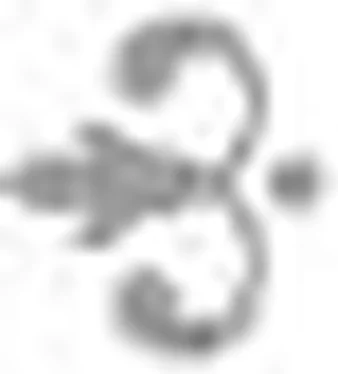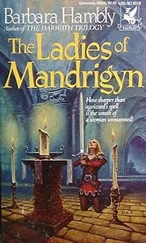Dinner at Mount Vernon.
Martha scanned the length of the table as Frank and Austin, resplendent now in their white liveries trimmed in scarlet, brought in the platters: smoked ham, mashed potatoes, the pigeon pie that was the staple of winter fare, spoon bread, yams. It was always difficult to put on a decent meal at this season of the year, without lettuces or spinach or any fresh greens, but Uncle Hercules had worked his usual miracles with dried peas, dried apples, and Martha’s justly famous fruit conserves.
But it was the faces around the board, she decided, that were the true treasure of Mount Vernon, the real fruit of the Biblical “vine and fig tree” that George spoke of with such longing and love. Pale, too-thin Augustine leaned across to describe to Nelly the hurricanes that swept the island of Bermuda, where he had gone in quest of elusive health, while at the foot of the table, the tutor Tobias Lear was explaining some aspect of fortress-building to Wash. Fanny, pale and lovely in the voluminous flowered shawl that concealed her pregnancy, put in the observation that battlements were all very well, but what were the defenders going to do if the attackers managed to enlist a dragon or an evil wizard on their side?
Her family. Hers and George’s. All that was left to them of the children they had so dearly loved.
He had abandoned them once, to go and do his duty as men must do in troubled times.
The guilt that pierced her heart was that she had abandoned them, too; her only regret was the price they’d paid. The price she’d let these children pay, for her love of George.

George’s letter had reached her just before her departure in October of 1775 for Eltham Plantation, to visit Anna Maria. Eltham was where the War really started, for her. All the way down from Mount Vernon to Eltham, six days’ jolting by coach, Martha’s heart had turned and twisted like a fish fighting a hook, trying to determine in which direction her duty lay.
…I ask whether it will be convenient to you, to join me at the camp in Cambridge this winter….
The words had had the exact effect upon her as a glass of brandy: shock, elation, warmth that rose from her toes to the ends of her hair.
To the surprise of no one except those who’d thought themselves more qualified for the position—a largish group which included the Washingtons’ neighbor Colonel Horatio Gates and the head of the Massachusetts Sons of Liberty, John Hancock—George had been made Commander in Chief of the new Continental Army. General Charles Lee —no relation to the Virginia Lees—had sneered that this had had much to do with the fact that George had attended every Congressional session wearing his militia uniform, the only man there to do so.
Having met General Lee, a former mercenary whose mouth was as filthy as his shirt, Martha could only suppose that this was what the man would have done himself, had anyone elected him to Congress or to anything else.
And knowing George, Martha guessed that in a way Lee was right. George had worn his uniform for the same reasons that he would have worn his best clothing and hair-powder to an assembly of men empowered to elect him to the House of Burgesses: because he knew that what a man is given depends largely on what he looks like he can handle. He had worn his uniform precisely to underscore in every delegate’s mind that he had field experience in commanding men in battle, something John Hancock and a significant number of other contenders lacked.
The New Englanders couldn’t really object, because he’d been nominated by a tubby little Massachusetts lawyer named John Adams.
Since the debacle at Lexington and Concord, the British army had been bottled up in Boston by the ever-growing bands of militiamen camped on the Boston Neck. An island town, Boston was connected with the mainland by a single narrow track of dry land that stretched between acres of salt-marshes. Some fifteen thousand patriots were camped in a ragged semicircle centered in the little towns of Cambridge and Roxbury, where the Neck debouched onto the mainland. Just before George went up to take command in June, the British made an attempt to break out by sea, crossing the harbor to a place called Charles Town below Breed’s Hill. After savage fighting, they drove the militiamen from their makeshift emplacements on the hill, but were left too shattered to pursue their advantage. Which was just as well, Martha later gathered, because the militiamen had almost no ammunition. A further assault would have crushed them.
At about this same time, Royal Governor Dunmore retreated with his wife and children to the British man-of-war that was still sitting in the river off Williamsburg, and issued a call to Virginia Loyalists to form an army of his own. Along with this summons came the Governor’s promise that any slave who escaped a patriot master would be enlisted, armed, and given his freedom.
All their lives, everyone Martha knew had lived in dread of slave insurrections. Hand in hand with fear of organized rebellion—and in some ways more deadly—went the threat of troublemaking by individual slaves, subtle and silent protests against bondage in general, or an unloved master in particular, that could involve anything from breaking tools and hamstringing plow-oxen to burning houses and poisoning their masters…or their masters’ children. Fury and outrage swept not only the patriot planters, but men—not all of them slaveholders themselves—who felt no particular conviction about freedom from England one way or the other.
Dunmore was denounced in parlors and pulpits as a fomenter of slave insurrection. Hundreds of slaves decamped, from patriot and loyalist alike, to flock to the British standard.
At Dunmore’s proclamation, George’s brother John Augustine wrote Martha in a panic with schemes to carry her at once to safety, should Dunmore attack Mount Vernon. Martha wrote back that she considered herself perfectly safe where she was. Before leaving for Eltham in October, Martha packed up all George’s papers and the account books, not only of Mount Vernon but of the much larger Custis estate that had been left in trust for Jacky’s children, so that Cousin Lund, who’d been left in charge, could easily get them out of there.
“I cannot imagine Governor Dunmore besieging Mount Vernon with a troop of marines in order to capture one middle-aged lady knitting in her own drawing-room,” remarked Martha, when she produced George’s note for Anna Maria’s perusal their first morning at Eltham. Jacky and his pretty Eleanor were still sleeping—Eleanor had borne, and lost, her first child in September, and was still in delicate health—and Jacky because it was never possible to get Jacky out of bed before nine in the morning. Anna Maria’s two sons were at their lessons with their tutor, but eight-year-old Fanny had remained at the breakfast table while one of the housemaids brought in a basin of hot water and a towel, for Anna Maria to wash up the cups.
“And what would he do with me if he took me?” pursued Martha. “Chop off my fingers one by one, like a Turk, and send one to the General every day until he surrenders with all his army? Of course he wouldn’t.” She gave Fanny, round-eyed with horror, a reassuring smile. “One doesn’t do such things to people who’ve had you and your family to dinner.”
“The Governor might put you in a dungeon,” suggested the child.
“He might,” agreed Anna Maria, setting the cups to dry on the towel. Eltham was a larger house than the six-room wooden structure in which the Dandridge girls—and their five brothers and sisters—had grown up at Chestnut Grove. But though the china and silver lacked the elegance of those at Mount Vernon, still there were things that the lady of the house would not entrust to any slave. “He’d put your aunt Martha to mending sheets, and then your uncle George would have to send his army down to get her out.”
Читать дальше






